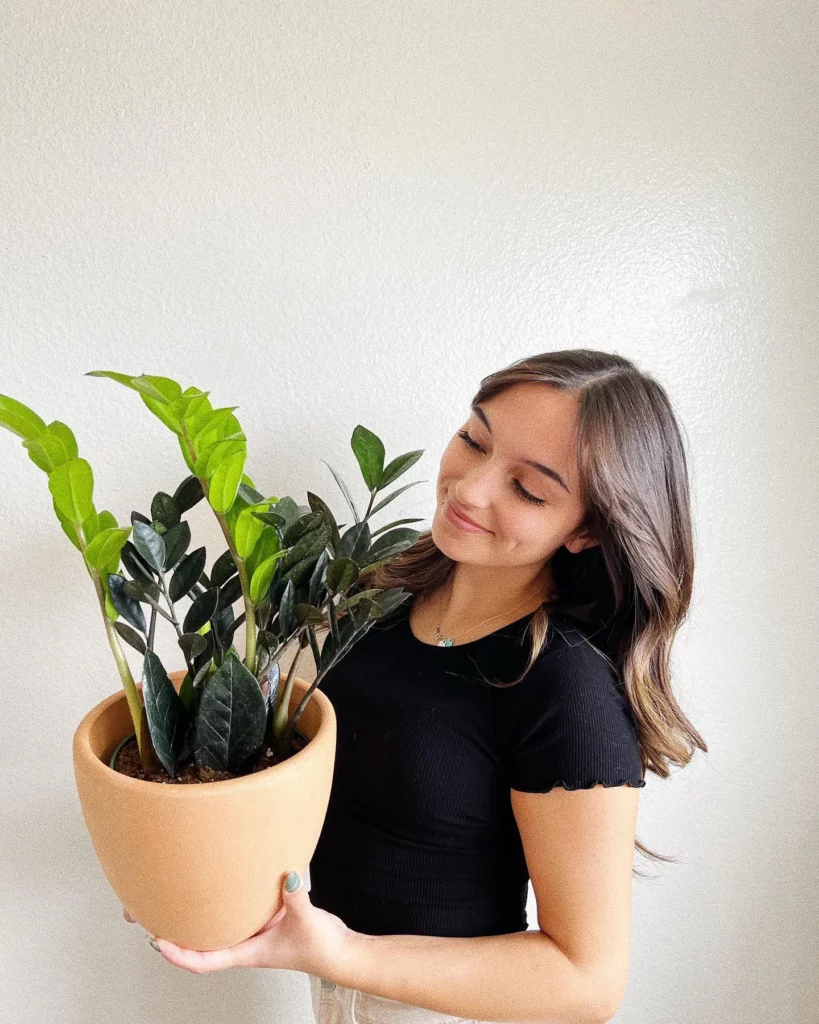Houseplants can significantly enhance well-being and reduce stress by purifying air, boosting mood, and creating a serene, nature-inspired environment.
In today’s fast-paced world, mental health is a crucial concern that affects us all. We’re constantly looking for ways to reduce our stress levels and improve our overall well-being. One solution that has gained popularity in recent years is houseplants. Yes, you heard it right, houseplants!
No products found.
These humble green friends have been found to have an incredible impact on our mental health, from reducing stress levels to enhancing our mood. In this article, we will explore the science behind this phenomenon and provide you with practical tips on how to transform your living space into a serene sanctuary with the help of some leafy friends.
The Science Behind Houseplants and Mental Well-Being

Did you know houseplants do more than just add aesthetic value to indoor spaces? Science has proven that incorporating houseplants into your environment can improve your mental well-being in several ways.
Firstly, houseplants can enhance air quality. Research has shown that certain plants, such as spider plants and peace lilies, have air-purifying abilities that can help remove toxins from the air and improve overall air quality.
Secondly, houseplants can reduce stress levels and enhance mood. Studies have indicated that exposure to nature, even in the form of indoor plants, has a positive impact on our emotional state. A study conducted by the University of Technology, Sydney, found that office workers with natural elements in their workspace reported a 15% higher level of well-being than those without.
The Journal of Environmental Psychology published a study in 2014 that found plants have the ability to reduce psychological and physiological stress levels in subjects exposed to an uncomfortable environment. Another study revealed that patients in hospital rooms with plants experienced reduced levels of anxiety and fatigue than those without.
Choosing the Right Houseplants for Stress Relief

When selecting houseplants for stress relief, consider low-maintenance options such as succulents and snake plants, which require minimal attention and still provide air-purifying benefits. Another worthwhile option is lavender, which has soothing and relaxing properties, and can promote deep sleep.
If you have pets, be sure to choose plants that are non-toxic and safe for them to be around, such as spider plants and Boston ferns. Additionally, consider the light requirements of your chosen houseplants and ensure they match the conditions of your home.
- Low-maintenance options:
- Succulents
- Snake plants
- Calming plants:
- Lavender
- Jasmine
- Pet-friendly options:
- Spider plants
- Boston ferns
Creating a Serene Space with Houseplants

If you want to transform your home or office into a relaxing and serene space, houseplants are the perfect addition. Arranging houseplants strategically can make a significant difference in creating a tranquil environment.
- Create plant groupings: grouping plants together can create a lush, cohesive look. Consider grouping plants of the same species or those with similar growth habits for a visually pleasing effect.
- Use different heights and textures: by incorporating houseplants of different heights and textures, you can add depth and interest to your space. Tall plants such as fiddle-leaf fig trees can also help fill empty vertical spaces.
- Incorporate plants into specific areas: certain areas of your home or office can benefit from the addition of houseplants. For example, placing plants in your bedroom can promote relaxation and better sleep, while adding them to your workspace can improve air quality and enhance productivity.
Caring for Your Houseplants for Optimal Benefits

To get the most out of your houseplants, it’s important to care for them properly. Follow these practical tips to ensure their well-being:
- Watering: Ensure that your plants are receiving the right amount of water. Overwatering can lead to root rot, while underwatering can cause wilting. Check the soil regularly and water when the top inch feels dry.
- Light requirements: Each plant has specific light requirements. Some prefer bright, direct sunlight, while others thrive in low light conditions. Research the light needs of your plants and place them accordingly.
- Fertilization: Use a high-quality fertilizer to provide essential nutrients to your plants. Follow the package instructions for frequency and dosage.
- Addressing common plant problems: Keep an eye out for common issues such as pests, yellowing leaves, and stunted growth. Take prompt action to address the problems to prevent them from worsening.
Houseplants and Stress Reduction in the Workplace

Introducing houseplants in the workplace is a simple yet effective way of creating a stress-free environment. These live plants do more than just beautify office spaces; they also promote mental relaxation, increase productivity, and improve air quality.
Research shows that workers in spaces with indoor plants report 15% higher levels of well-being and creativity compared to those who work in spaces without vegetation.
Plants such as the Peace Lily, ZZ Plant, and Snake Plant are excellent options for office settings, as they require minimal maintenance and can tolerate low-light conditions. Small cacti and succulents also make great desk companions, as they are easy to care for and add a touch of greenery to workspaces.
- To reduce stress in the workplace, consider the following houseplants:
- Peace Lily
- ZZ Plant
- Snake Plant
- Bamboo Palm
- Spider Plant
Adding houseplants to the office is a quick and cost-effective way to boost employee well-being and productivity. So go ahead and bring some green charm to your workplace today!
Houseplants and Better Sleep Quality

Did you know that incorporating certain houseplants into your bedroom can lead to better sleep quality?
Some plants are known for their ability to release oxygen at night, which can help you breathe easier and create a more restful environment. Others are known for their calming properties and can help promote relaxation before bed.
Some of the best houseplants for better sleep quality include:
- Lavender
- Jasmine
- Snake plant
- Aloe vera
In addition to incorporating these plants, it’s also important to create a calming bedroom environment. Reduce clutter and distractions, keep the room cool and dark, and invest in comfortable bedding.
The Emotional Connection: Houseplants as Therapeutic Allies
Houseplants can offer more than just aesthetic appeal and stress relief. They can be your therapeutic allies. When you take care of plants, it can help you develop a sense of responsibility and give you a feeling of accomplishment.
The process of nurturing houseplants can be therapeutic in itself, and the emotional connection you form with them can be profound. They can serve as your companions and sources of comfort during difficult times. Research shows that having plants in your home can boost your mood, lower anxiety levels, and even promote healing.
Furthermore, houseplants can help you create a connection with nature even if you do not have access to the outdoors. They remind you of natural cycles and can serve as a focal point for meditation and mindfulness.
When you develop an emotional connection with your houseplants, they become more than just decoration. They become a source of inspiration, energy, and emotional well-being. So, pick a houseplant that speaks to you, and start building your therapeutic connection today!





